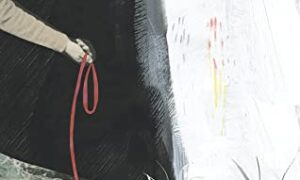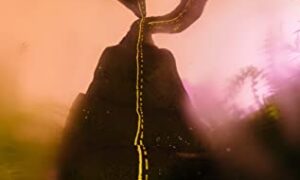 Bread and Milk and Salt by Sarah Gailey
Bread and Milk and Salt by Sarah Gailey
My rating: 4/5 cats




“Come with me,” I said.
“Show me what you’re really like,” he said.
I shoved my wet black deer-nose into his palm. He hesitated, then ran his hand across my head. My fur was as soft as butter that night. He caressed my face, brushed the underside of my chin. I turned my face into his hand and breathed in the smell of his skin, his pulse. I closed my teeth around the pad of flesh at the base of his thumb and sank them in, biting down deep and hard and fast.
“What the fuck—” he cried out, but before he could pull his hand away, I flicked my tongue out and tasted his blood.
“That’s what I’m really like,” I said, my voice low and rough.
i’m glad that i expanded my weekly free tor short reading to include “reprints” as well as “original fiction” this week. i haven’t been choosing well from the originals lately, but this one i really enjoyed. it is reprinted from the anthology Robots vs. Fairies, which i own and have yet to read,* because that’s what i do.
i’m going to try to stick to my pledge of keeping the length of my reviews commensurate with the length of the text in order to save myself the grief of making my backlog of pending reviews any bigger than it needs to be, because along with buying anthologies and never getting around to reading them, i also have a tendency to spend far more time reviewing a short story than it took me to read the damn thing and maybe this is why i never get around to reading any of these books i have lying around.
this story bears some thinking about, though.
it’s the story of a fairy and a man, although they meet when he is a little boy, and it is narrated through the first person POV of the fairy.
the fairy sees the boy and wants him, for reasons undisclosed, but it tracks him throughout the boy’s life, appearing to him as different animals with devious intentions.
I waddled over to him, picked up a piece of bread in my beak, and did a dance. I was considering luring him away and replacing his heart with a mushroom, and then sending him back to his parents so they could see the rot blossom in him. He laughed at my duck-dance, and I did an improbable cartwheel for him, hoping he would toddle toward me. If I got him close enough to the edge of the duck pond, I could pull him under the water and drown him and weave mosses into his hair.
all of you bird lovers should know that this is pretty much what all ducks are thinking all of the time.
it also appears to him as a cat:
I leapt onto his windowsill next to the precariously-balanced, brimming bowl, and I lapped at the milk while he watched. His eyes were bright and curious, and I considered filling his eye sockets with gold so that his parents would have to chisel through his skull in order to pay off their house.
all of you cat lovers already know that this is pretty much what all cats are thinking all of the time. and it doesn’t stop us from doting on them.
in any case – in between its visits to the boy, the fairy does what fairies do, which is mischief and occasionally fatal mayhem against humans before it finally comes back to the boy again, and that first part i quoted occurs, leading to this:
…I licked his blood from my muzzle. It burned going down—iron—but it was enough to bind us. He would run from me, but he would never be able to escape me altogether. Not now.
and this is where the story starts worming in. because, just like in another book i recently read, In the Valley of the Sun, the supernatural assailant realizes that this binding cuts both ways, and the power dynamic is not necessarily in their favor.
I was bound. And I am what I am. So I followed.
for me, the most interesting part of it is from the perspective of readerly sympathies. the first person voice tends to draw the reader in, aligning them with the narrator, even if they aren’t human (the narrators – i don’t have any data on non-human readers), even if they are predatorial against humans (again – the narrators), which this one certainly is. and when things start getting precarious for the fairy, you (i) find (found) yourself (myself) siding with the fairy against the human, even though what he’s doing is truly no more reprehensible than what the fairy was doing in its day-to-day, with the vivisection-encouragement and all that.
but i do believe we are to read the ending of this story as triumphant. the fairy certainly does, but why is the reader drawn to the fairy over peter – applauding one monster’s defeat of another? is it simply because of the aligning power of POV? is it because a fairy is exempt from the social ethics of humans; that wanting to drown little kids is just what fairies do? is it because, for most of the second half of the story, the fairy is in the shape of a human woman, and it becomes a domestic abuse parallel in which we naturally root for the victim?
for such a short story, it’s trickier than it appears on the surface, and i think it’s worth digging into a little more.
what does all this mean? well, basically it means i have failed in my mission to keep these short and sweet and not overthink them, so hooray – SWEET SWEET FAILURE ALL FOR ME!
short review for a short story!
read it for yourself here:
https://www.tor.com/2018/11/07/reprin…
* also true of the first anthology – Zombies Vs. Unicorns







